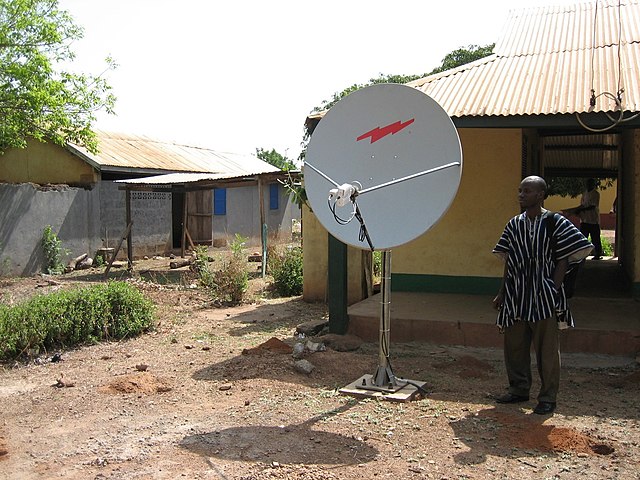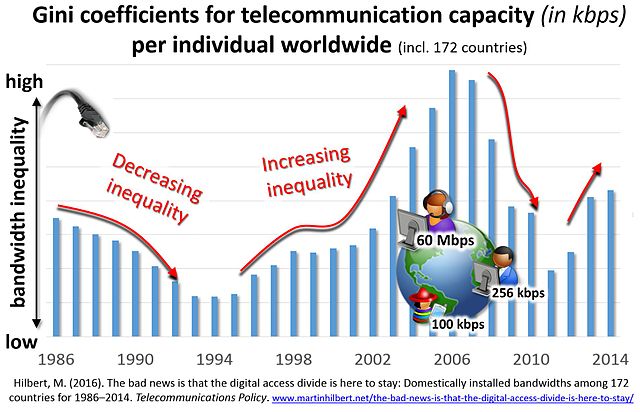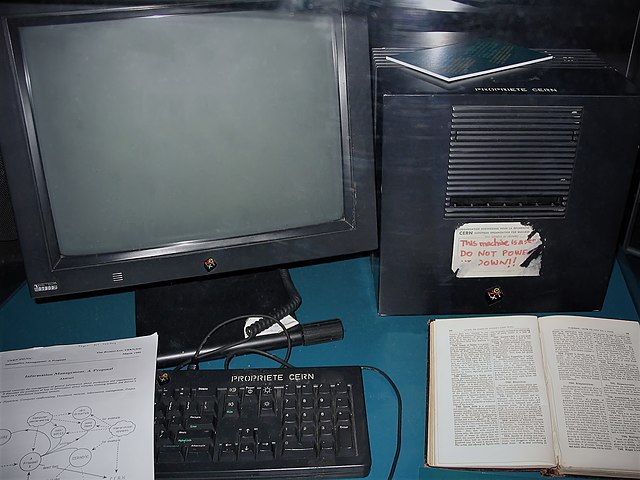Internet access is a facility or service that provides connectivity for a computer, a computer network, or other network device to the Internet, and for individuals or organizations to access or use applications such as email and the World Wide Web. Internet access is offered for sale by an international hierarchy of Internet service providers (ISPs) using various networking technologies. At the retail level, many organizations, including municipal entities, also provide cost-free access to the general public.
Satellite Internet access via VSAT in Ghana
The digital divide measured in terms of bandwidth is not closing, but fluctuating up and down. Gini coefficients for telecommunication capacity (in kbit/s) among individuals worldwide
The Internet is the global system of interconnected computer networks that uses the Internet protocol suite (TCP/IP) to communicate between networks and devices. It is a network of networks that consists of private, public, academic, business, and government networks of local to global scope, linked by a broad array of electronic, wireless, and optical networking technologies. The Internet carries a vast range of information resources and services, such as the interlinked hypertext documents and applications of the World Wide Web (WWW), electronic mail, telephony, and file sharing.
ICANN headquarters in the Playa Vista neighborhood of Los Angeles, California, United States
This NeXT Computer was used by Tim Berners-Lee at CERN and became the world's first Web server.
Banner in Bangkok during the 2014 Thai coup d'état, informing the Thai public that 'like' or 'share' activities on social media could result in imprisonment (observed 30 June 2014)





